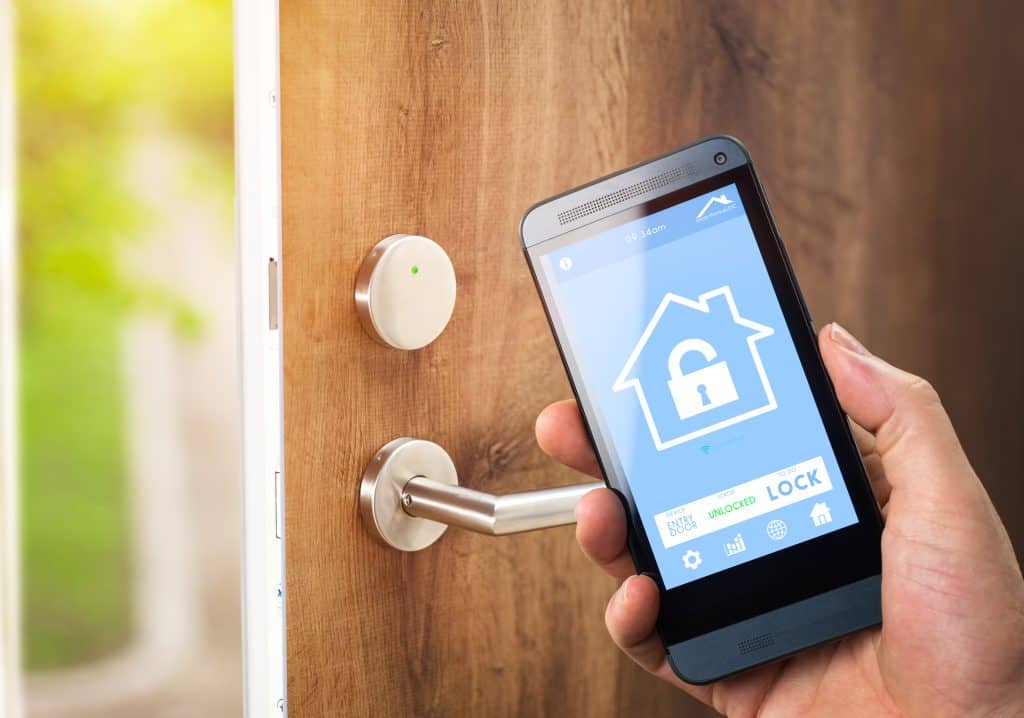In today’s rapidly advancing world, how we secure our properties has undergone a revolutionary transformation. Gone are the days of traditional locks and keys. Instead, we find ourselves at the forefront of a new era where intelligent door locks revolutionize access control in commercial properties. These cutting-edge devices combine technology and convenience to provide enhanced security, seamless operations, and a futuristic user experience. Join us as we delve into the world of smart door locks and discover their tremendous potential in commercial settings.
Benefits of Smart Door Locks in Commercial Properties
Enhanced Security Measures
In security, intelligent door locks stand tall, offering myriad benefits. Advanced access control and monitoring capabilities enable businesses to have a complete overview of who enters and exits their premises. Integration with surveillance systems ensures real-time alerts and notifications, empowering property owners with a proactive approach to security.
Convenience and Efficiency
Smart door locks eliminate the need for traditional keys, providing a keyless entry experience. Employees and authorized personnel can conveniently access the premises using PIN codes, biometrics, or smartphones. Seamless visitor management streamlines the process of granting temporary access, making interactions more efficient and hassle-free. Furthermore, time-sensitive access permissions allow businesses to give quick access to contractors or delivery personnel, enhancing operational efficiency. Check this item here.
Cost Savings and Operational Streamlining
With smart door locks, businesses can bid farewell to the complexities of key management. Say goodbye to rekeying expenses and the inconvenience of replacing lost keys. These innovative devices allow for efficient employee onboarding and offboarding, reducing administrative burdens and costs associated with traditional lock systems.
Types of Smart Door Locks for Commercial Properties
There is no one-size-fits-all approach when it comes to smart door locks. Commercial properties can choose from various options to find the perfect fit for their needs. The possibilities are vast, from keypad-based smart locks offering PIN code entry systems to biometric solutions like fingerprint and facial recognition. Proximity-based locks using RFID technology or Bluetooth integration with mobile apps provide further flexibility. Integrating existing security systems, such as alarm systems and video surveillance, ensures a cohesive and comprehensive approach to access control.
Key Considerations for Choosing Smart Door Locks
As businesses embark on their journey towards smart door locks, several key considerations must be considered. Security features and encryption should be robust, ensuring the utmost protection against unauthorized access. Scalability and integration capabilities allow for future expansion and integration with other intelligent building systems. Power backup and emergency access features guarantee seamless operation even during power outages. A user-friendly interface and mobile app support facilitate easy management and monitoring. Durability and weather resistance are crucial to ensure longevity and reliability in varying environmental conditions.
Implementation and Installation Process
Implementing smart door locks involves a systematic process to ensure a successful transition. It begins with assessing security needs and property requirements, followed by selecting the right bright door lock system. Adequate planning and preparation are necessary to ensure a smooth installation process. Engaging professional installers guarantees proper configuration and integration with existing systems. Comprehensive testing and employee training ensure a seamless transition for all stakeholders involved.
Best Practices for Using Smart Door Locks in Commercial Properties
To maximize the benefits of intelligent door locks, businesses should adopt best practices for their usage. Regular maintenance and updates keep the system functioning optimally and protect against emerging threats. Safeguarding access credentials and implementing multi-factor authentication adds an extra layer of security. Setting up access control policies aligns with business requirements and restricts access where needed. Monitoring and auditing access logs enable businesses to track and review entry activities. Lastly, training employees on proper usage and security protocols ensure everyone understands and follows the established procedures, minimizing the risk of breaches or misuse.
Potential Challenges and Security Risks
While smart door locks offer numerous advantages, being aware of potential challenges and security risks is essential. Vulnerabilities and hacking risks exist in any connected system, making selecting locks with robust security features and encryption crucial. Malfunctioning and technical issues can occur, necessitating prompt troubleshooting and support from the manufacturer or installer. Employee resistance and adoption challenges may also arise during the transition to smart door locks. Addressing concerns and providing comprehensive training is essential for a smooth adoption process.
Success Stories: Real-world Examples of Smart Door Lock Implementations
Across various industries, businesses have embraced the power of intelligent door locks and experienced remarkable success. In corporate offices, smart locks have streamlined access control, enabling efficient employee movement while ensuring security. Retail stores and chains have leveraged intelligent door locks to enhance customer experiences and minimize theft risks. Co-working spaces have implemented these locks to provide flexible access for members while maintaining a secure environment. Hotels and the hospitality industry have transformed guest experiences by offering keyless entry and personalized access.
Future Trends and Innovations in Smart Door Locks
The evolution of intelligent door locks shows no signs of slowing down. As technology advances, exciting trends and innovations emerge. Integration with artificial intelligence opens doors to intelligent access control systems that learn and adapt based on user behavior. Voice-activated access control offers a hands-free and convenient experience, enhancing user comfort. Enhanced biometric recognition techniques, such as advanced facial recognition algorithms, continue to improve accuracy and security.
Conclusion
Smart door locks have revolutionized access control in commercial properties, providing enhanced security, convenience, and cost savings. By embracing these advanced systems, businesses can streamline operations, reduce critical management efforts, and ensure efficient onboarding and offboarding processes. The intelligent door lock type choice depends on specific needs, ranging from keypad-based systems to biometric and proximity-based solutions. Implementing smart door locks involves careful planning, professional installation, and thorough employee training. By following best practices and addressing potential challenges, businesses can unlock the full potential of intelligent door locks and stay ahead in the ever-evolving landscape of security technology.

Ashley Rosa is a freelance writer and blogger. As writing is her passion that why she loves to write articles related to the latest trends in technology and sometimes on health-tech as well. She is crazy about chocolates. You can find her at twitter: @ashrosa2.







